



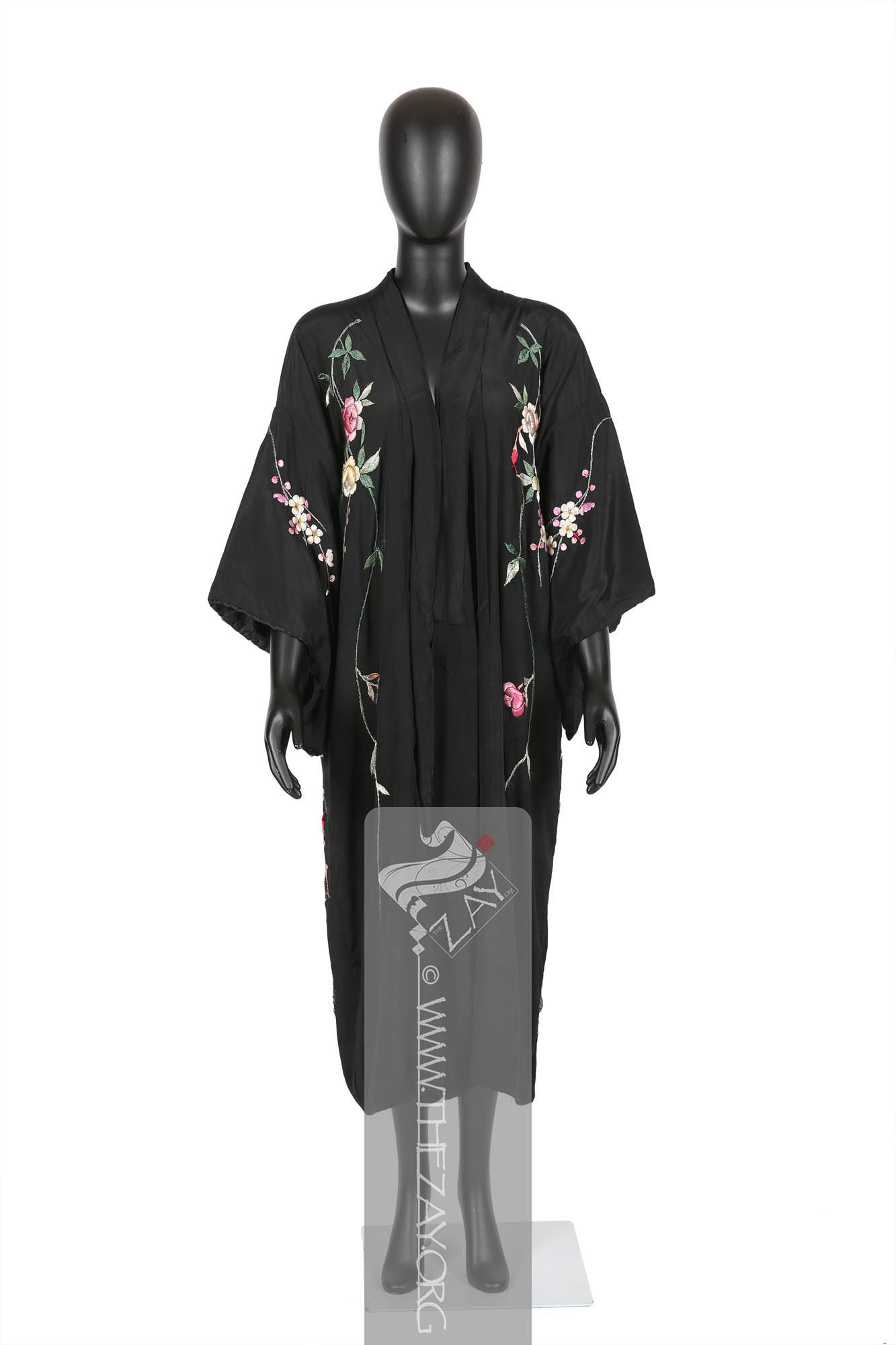
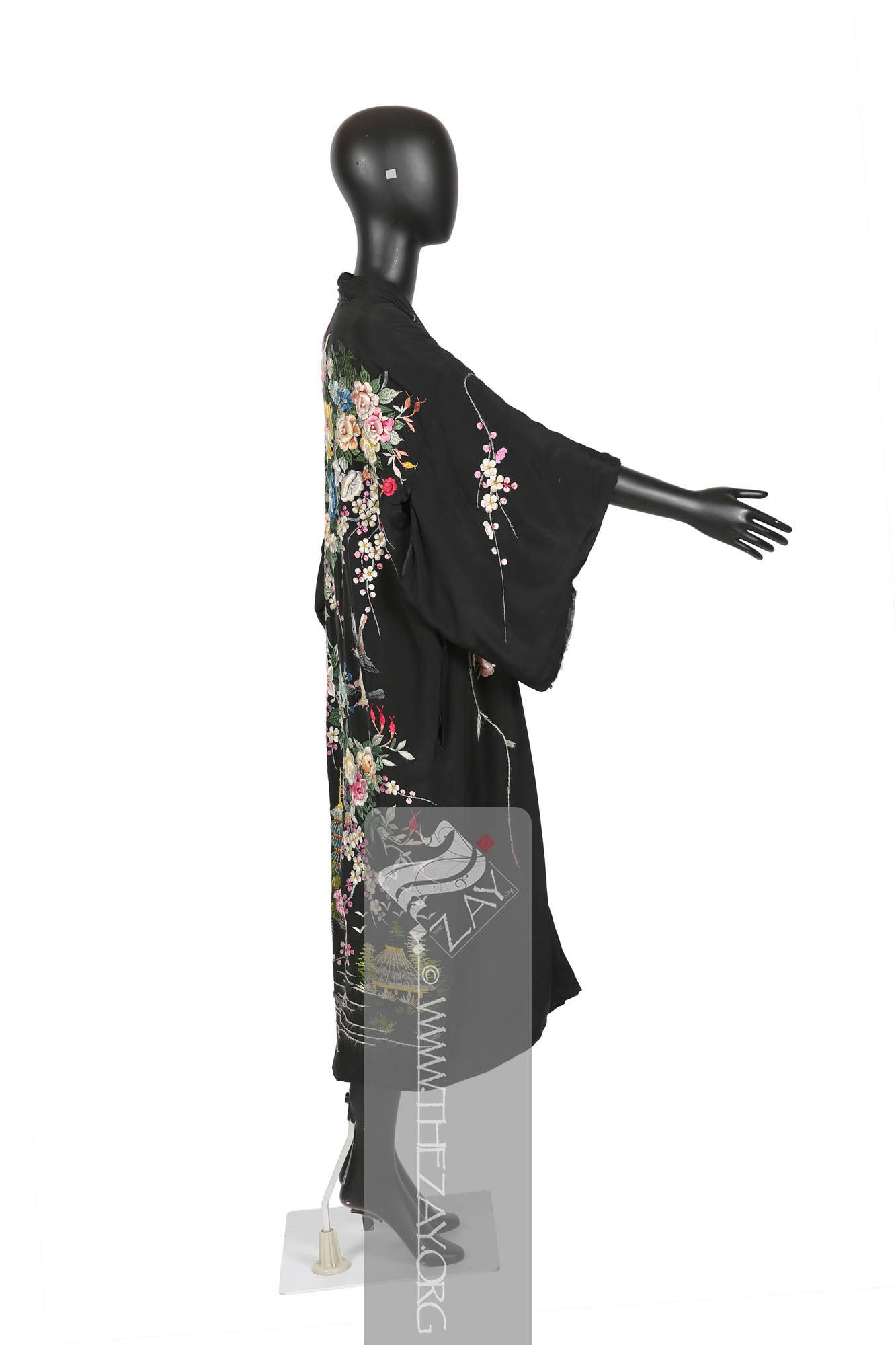
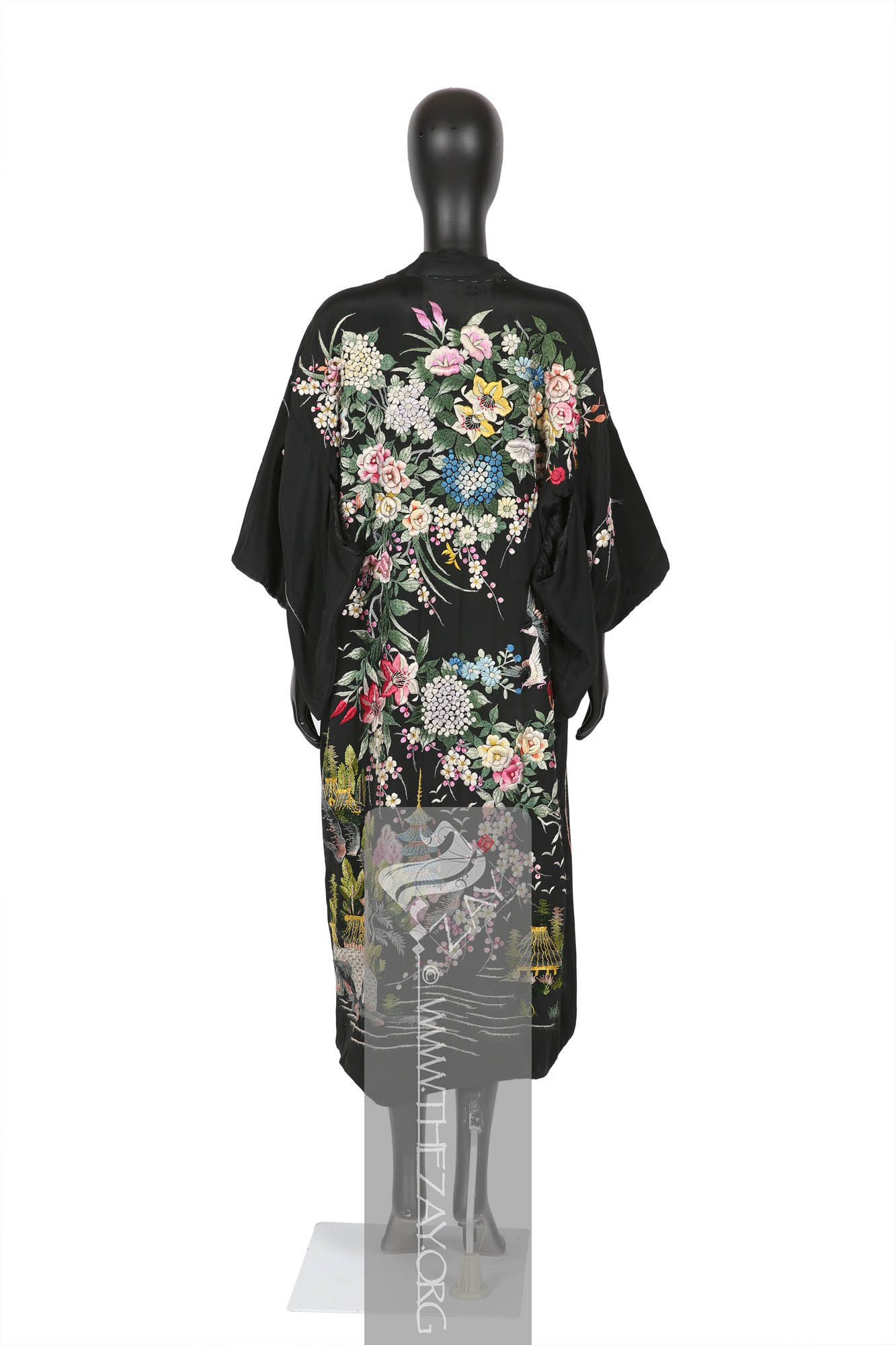
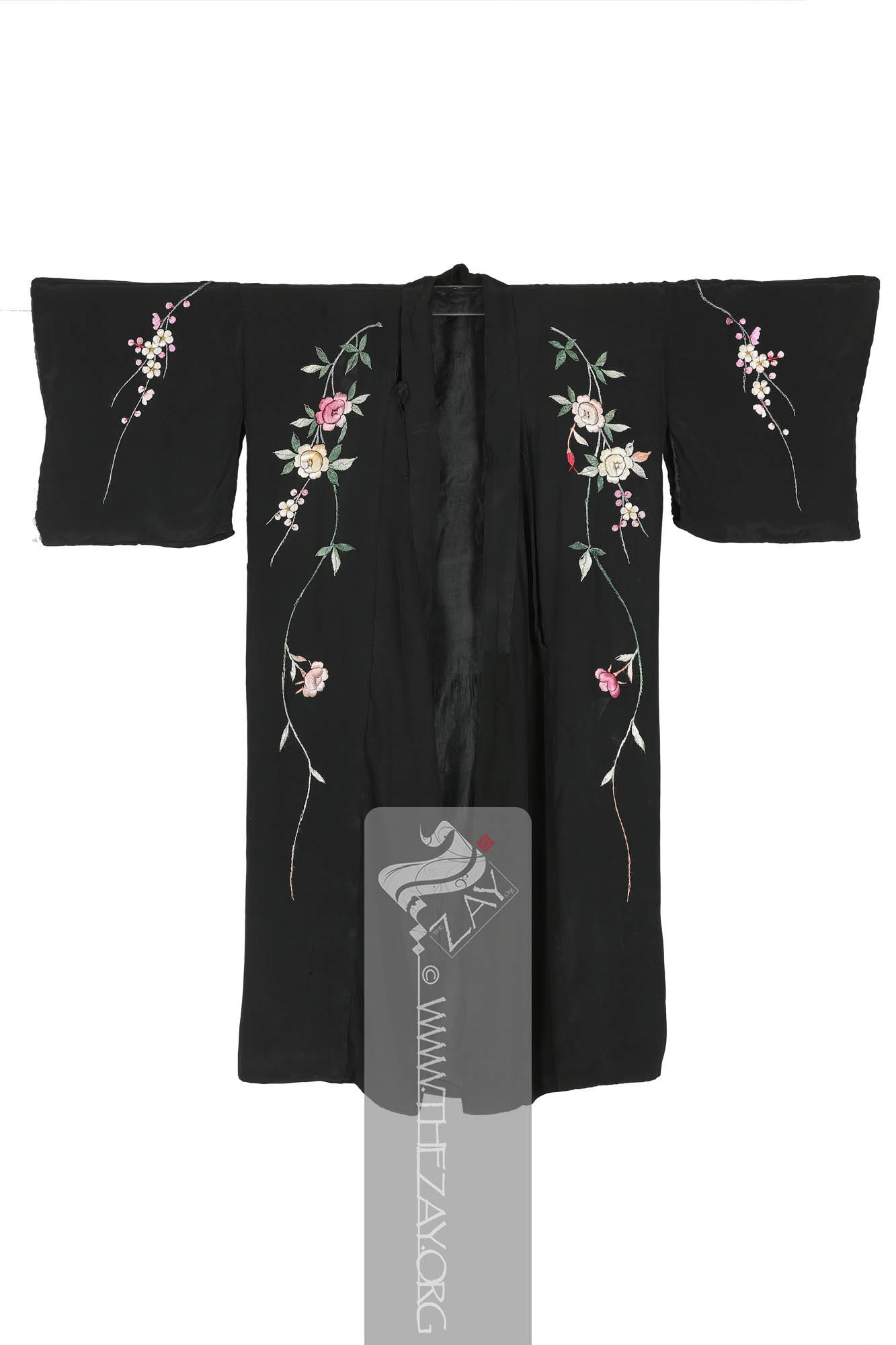
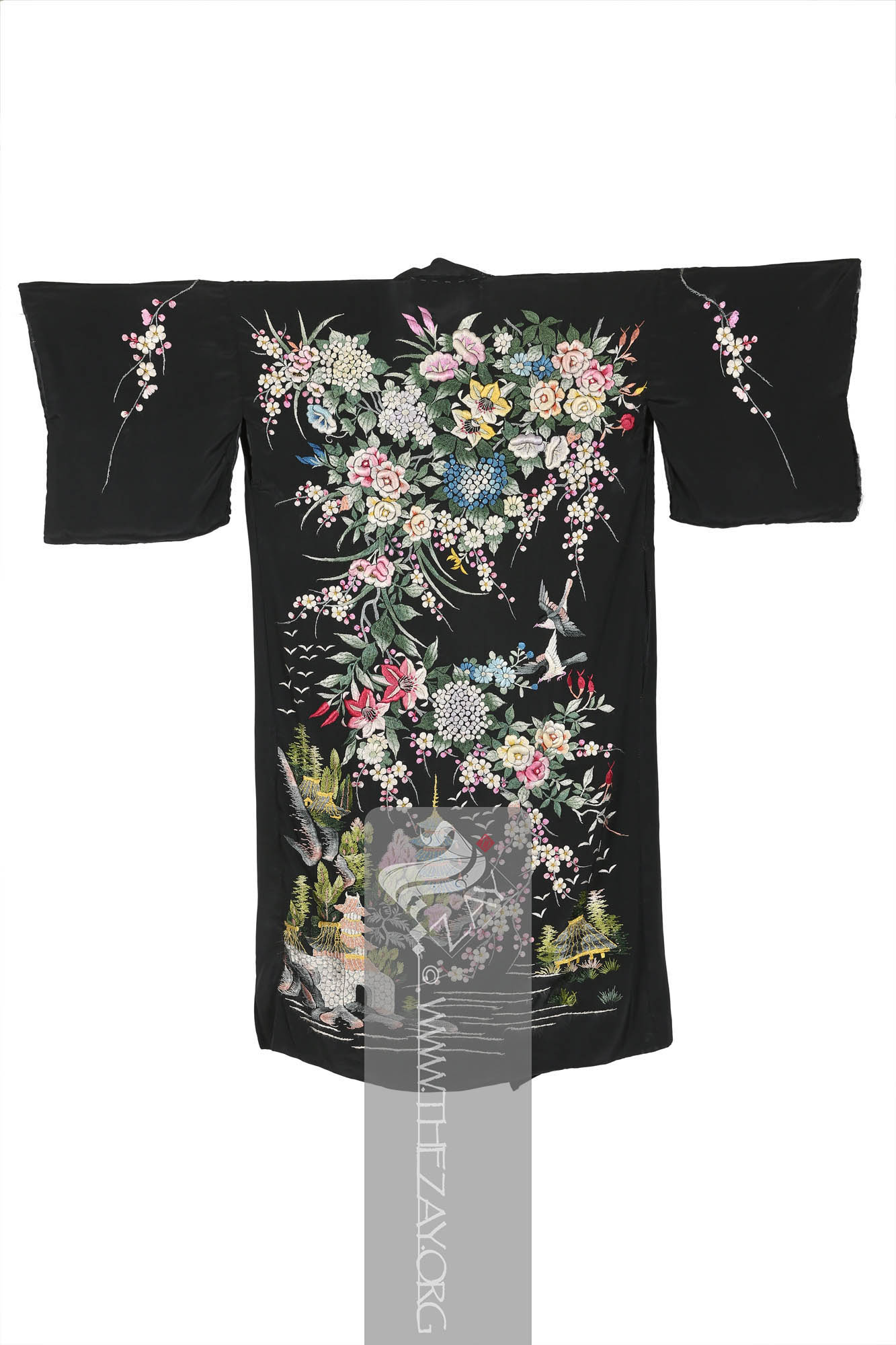
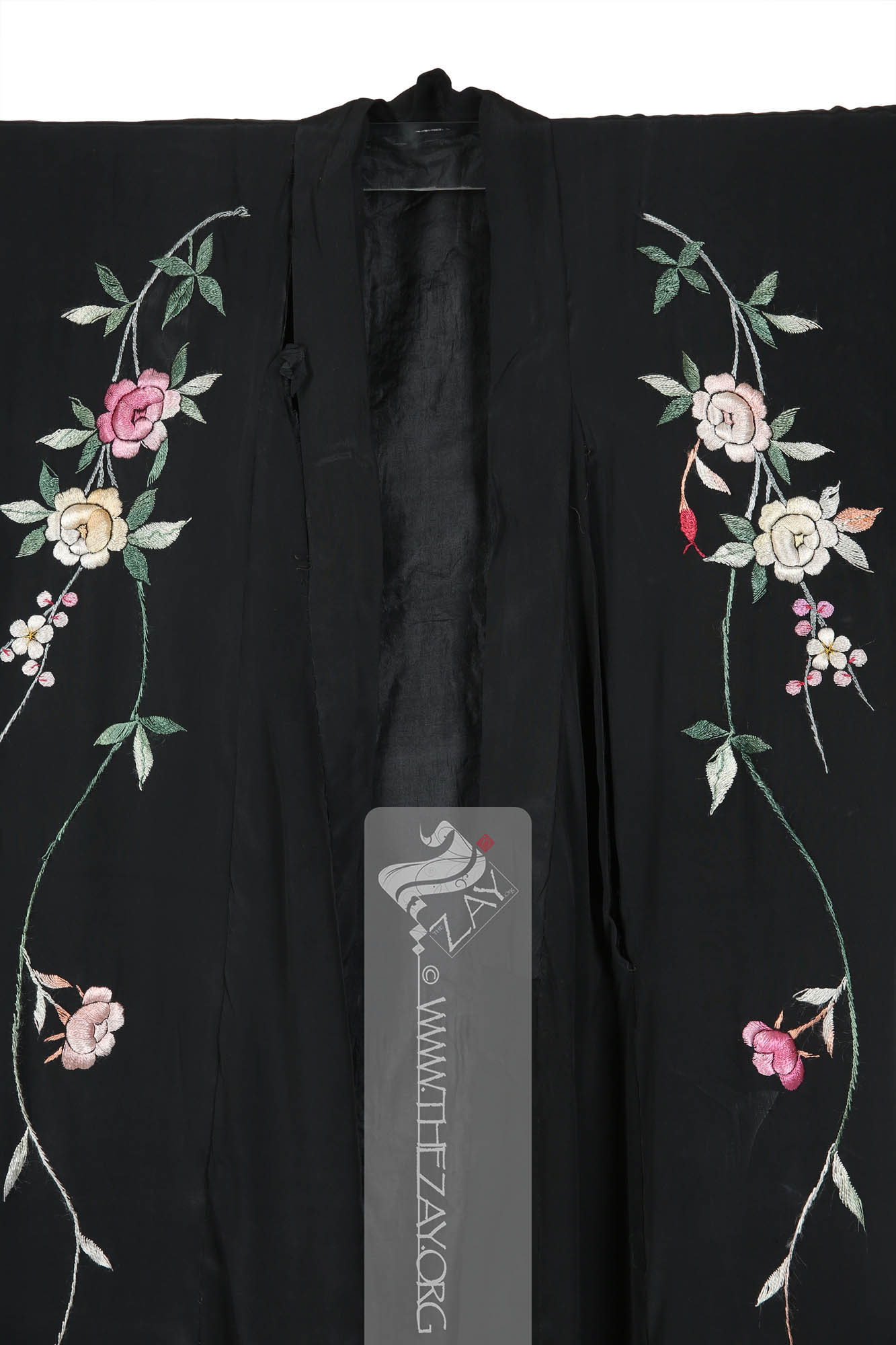
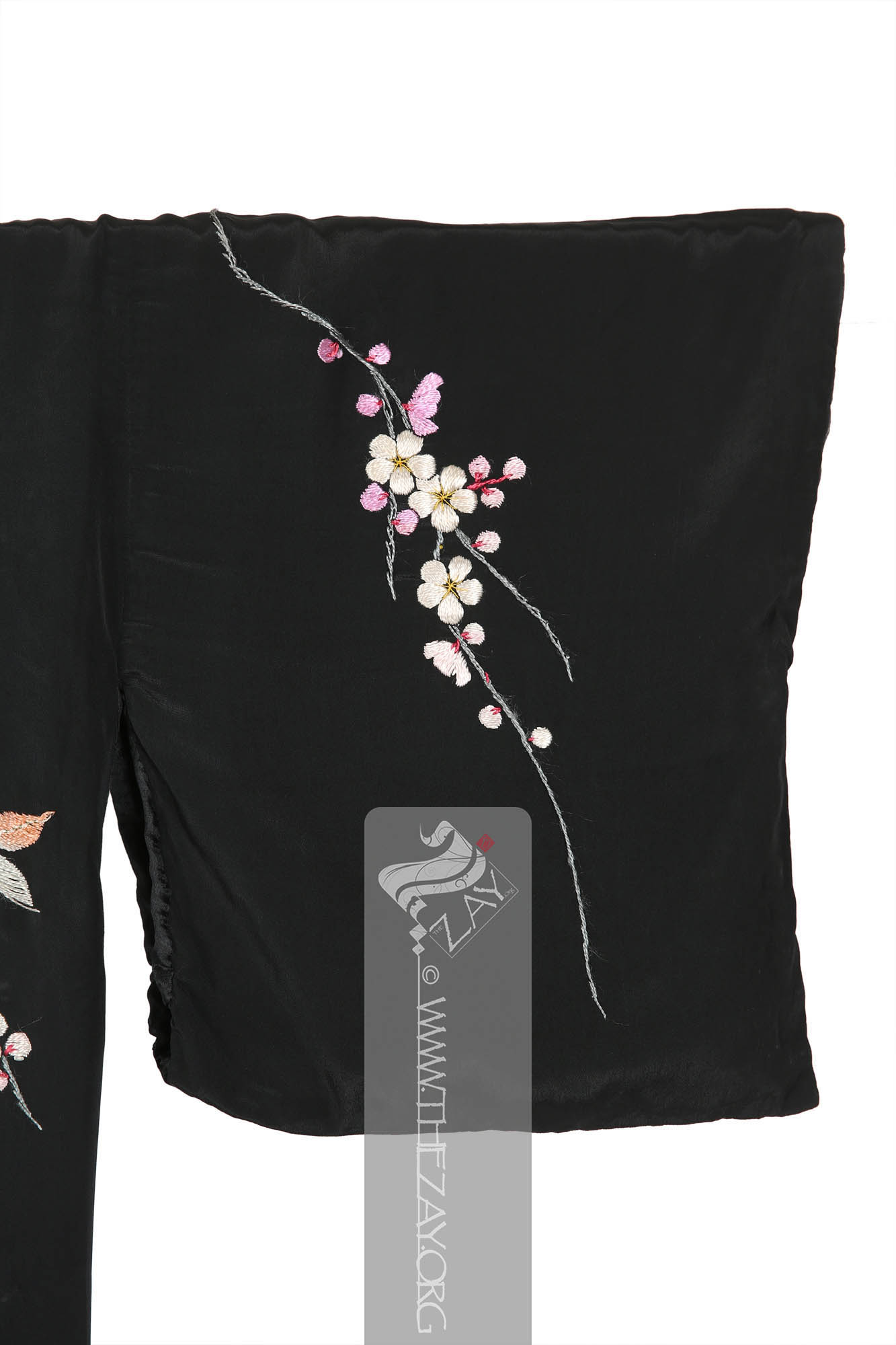
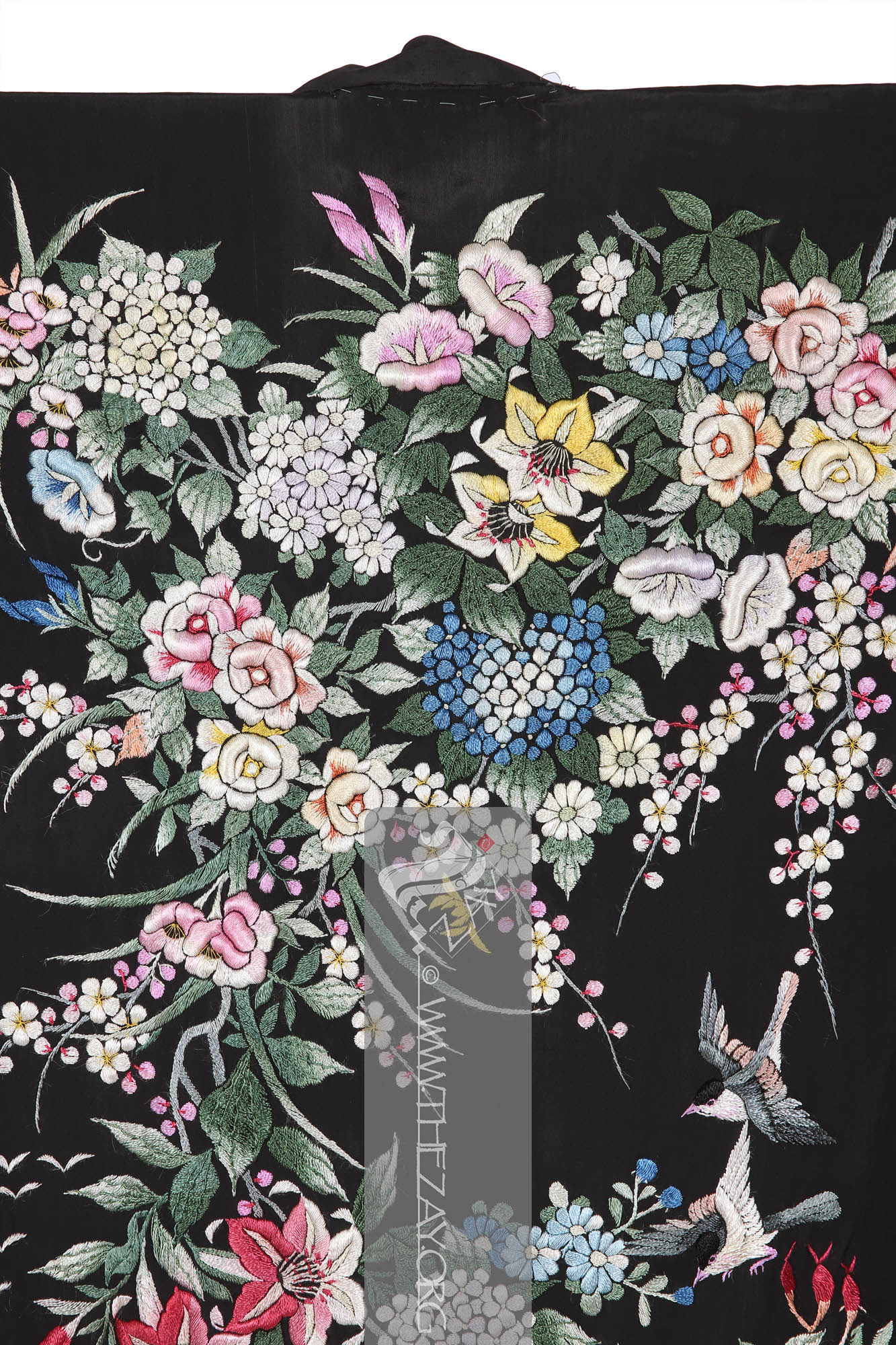
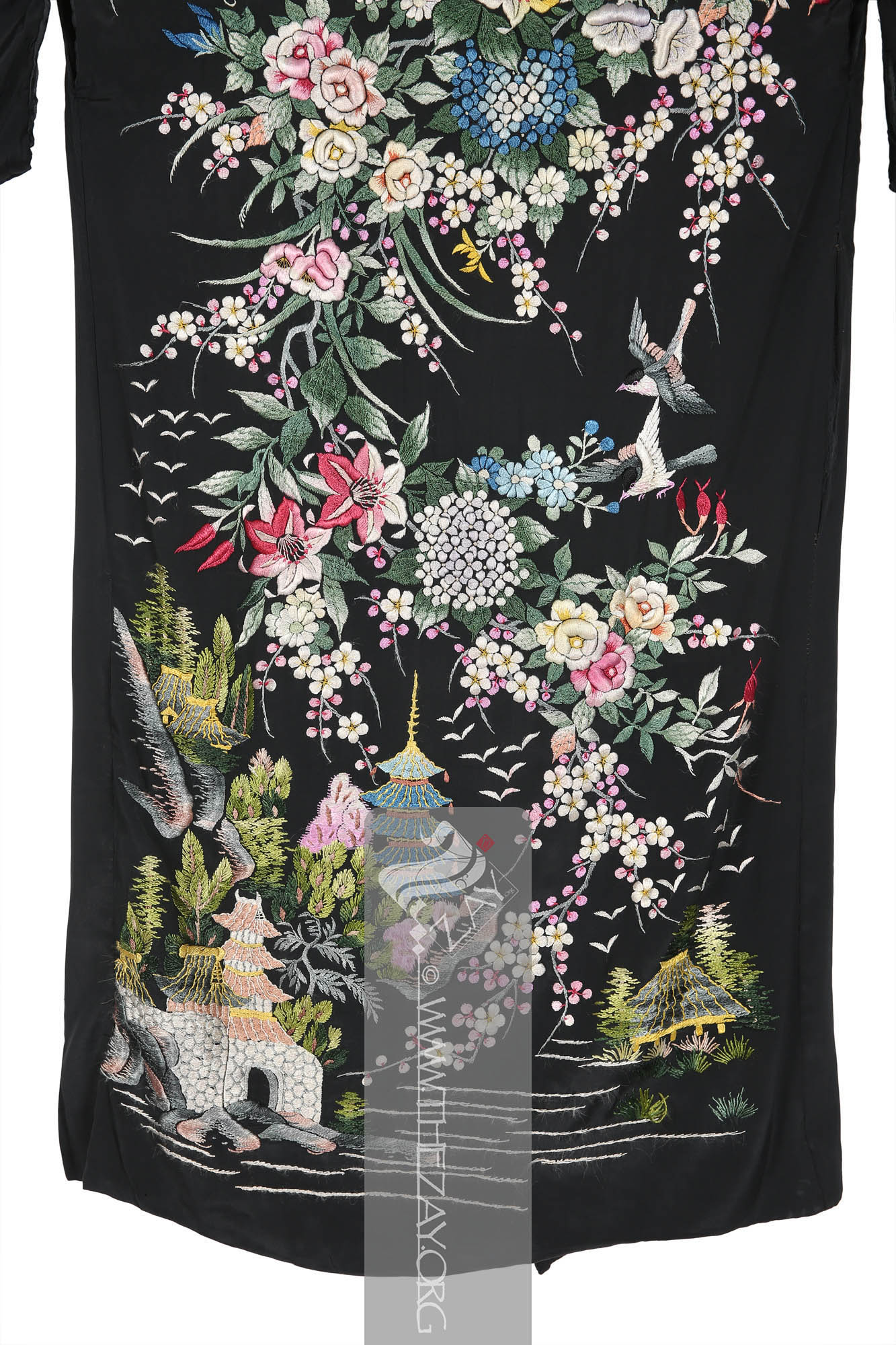
| Local Name | Kimono, robe |
| Object Category | Overgarment |
| Gender | Female |
| Place Of orgin | Asia |
| Region | Japan |
| Object Range | Japan |
| Dimensions | Length: 124 cm Width: 123 cm |
| Materials | Silk |
| Technique | Hand Stitched Hand Embroidered |
| Color | |
| Motif | Floral |
| Provenance | Purchased, dealer, London 2017 |
| Location | The Zay Zay: (Arabic: costume, Pl. azyaā’), a set of clothes in a style typical of a particular country or historical period. Initiative |
| Status | In Storage |
| ZI number | ZI2017.500485 ASIA |
Crepe: (Latin: crispus; Old French: crespe – curled or frizzed), is a lightweight, crinkled fabric with a pebbled texture woven from a hand spun untreated or ‘in the gum’ silk yarn.
fabric traditionally made from silk. It has a distinctive pebbly texture and is commonly used in kimono Kimono: (Japanese: ki : wearing, mono: thing, Singular: Kimono) A traditional Japanese long loose robe with wide sleeves tied with a sash around the waist. Presently it is the national dress of Japan. and other traditional garments. Originally brought from China chirimen weaving extensively developed during the Edo period (1603-1868) and continues to be a popular textile in modern Japan. ) silk was purchased by Dr. Reem TariqṬariq: (Arabic; Synonym: tulle_bi_talli
Tūlle_bi_tallī: (French: Tulle – a city in France where fine material for veil was first made; Turkish: tel – wire; Synonym: tariq; talli; badla; khus_dozi ), series of small metal knots made on a woven net ground as embellishment. The term is commonly used in the North African Arab region specifically in Egypt.
Ṭariq: (Arabic; Synonym: tulle_bi_talli
Tūlle_bi_tallī: (French: Tulle – a city in France where fine material for veil was first made; Turkish: tel – wire; Synonym: tariq; talli; badla; khus_dozi ), series of small metal knots made on a woven net ground as embellishment. The term is commonly used in the North African Arab region specifically in Egypt.
Couching: (Latin: collocare – Place together), in needlework and embroidery couching is a technique in which yarn or other materials are laid across the surface of the ground fabric and fastened in place with small stitches of the same or a different yarn
) and thread knotting techniques (macrame Macrame: makrəˌmā: (Arabic: karam: tree with dangling grapes), ornamental fringe. The art of knotting cord or string in patterns to make decorative articles. Earliest recorded uses of macramé-style knots as decoration appeared in Babylonian and Assyrian carvings.Macrame Macrame: makrəˌmā: (Arabic: karam: tree with dangling grapes), ornamental fringe. The art of knotting cord or string in patterns to make decorative articles. Earliest recorded uses of macramé-style knots as decoration appeared in Babylonian and Assyrian carvings.: (French: macramé – A hand-knotted textile from Turkish: makrama – table spread or towel, from Arabic: miqrama – bedspread possibly with knotted hanging fringes resembling dangling grapes or karam in Arabic) A form of textile or fringe made by a knotting cord in geometrical patterns possibly originating in Babylon and Assyria.), or flat metal adornment (talliTallī: (Turkish: tel – wire, string), Gulf Arab – a woven braided trimming made with metal wire, threads and ribbons often sewn on detachable panels used as embellishments. Other – (Synonym: tulle_bi_talli
Tūlle_bi_tallī: (French: Tulle – a city in France where fine material for veil was first made; Turkish: tel – wire; Synonym: tariq; talli; badla; khus_dozi ), series of small metal knots made on a woven net ground as embellishment. The term is commonly used in the North African Arab region specifically in Egypt.
Crepe: (Latin: crispus; Old French: crespe – curled or frizzed), is a lightweight, crinkled fabric with a pebbled texture woven from a hand spun untreated or ‘in the gum’ silk yarn.
-fabrics-chirimen chirimen: A Japanese crepeCrepe: (Latin: crispus; Old French: crespe – curled or frizzed), is a lightweight, crinkled fabric with a pebbled texture woven from a hand spun untreated or ‘in the gum’ silk yarn.
fabric traditionally made from silk. It has a distinctive pebbly texture and is commonly used in kimono Kimono: (Japanese: ki : wearing, mono: thing, Singular: Kimono) A traditional Japanese long loose robe with wide sleeves tied with a sash around the waist. Presently it is the national dress of Japan. and other traditional garments. Originally brought from China chirimen weaving extensively developed during the Edo period (1603-1868) and continues to be a popular textile in modern Japan. -kinsha